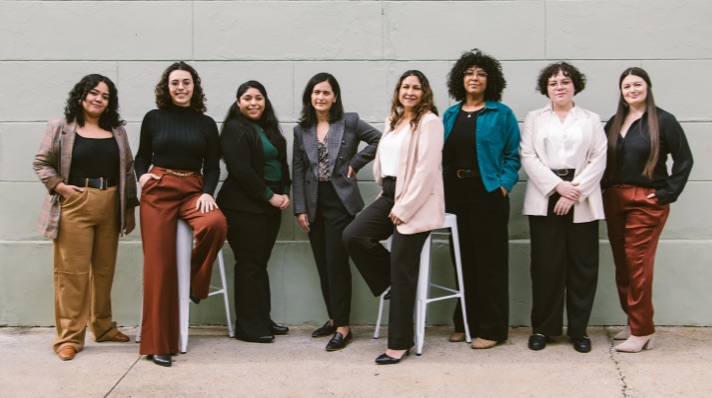Looking Back to Look Ahead: The Cyclical Battle for Equity-Centered Research
We’re living in unprecedented times. If you’ve tuned into any news in the last few months, you’ve likely heard this phrase and read about thousands of National Institute of Health grants at risk of termination, universities losing irreplaceable amounts of federal funding, and the mass staff reductions and terminations of research grants at the Department of Education. In the United States, evidence-based research often serves as the foundation for embarking on policy changes. Yet, research often challenges ingrained power structures and threatens those who benefit from the status quo.
It may seem unprecedented for research to be suppressed and defunded, but there are instances within the history of the United States where work related to promoting diversity, equity, and inclusion was undermined on a federal scale. In this post, we look to the past and see some parallel ways in which equity-centered work and research have been undermined, and identify ways in which researchers and community collaboratives can resist political pressures and advocate for the continued funding and support of DEI research, even in challenging climates.
Historical Examples of Research Suppression in the U.S.
1960s-70s: Richard Nixon, Lyndon B. Johnson, and Clashing Civil Policies
This was a period of intense political conflict over civil rights, economic justice, and the government’s role in addressing inequality. While these two administrations supported many social programs, funding for programs related to social justice, poverty reduction, and racial equality faced significant cuts, even amidst a “war on poverty.” Researchers immersed in this work often found that their life’s work was suppressed within just a few years.
- Example: The National Endowment for the Humanities (NEH), the National Science Foundation (NSF), and the National Institutes of Health (NIH) faced cuts in funding for research addressing poverty and race relations, especially those focused on African American history, which were severely limited.
1980s: The Reagan Era
In an era focused on economic growth and development, corporate interests often took priority over federally funded research, resulting in cuts to social science funding and the suppression of climate research.
- Example: An emphasis on ‘pure science research’ led to never-before-seen reductions in social science research funding, particularly related to political science and psychology.
2000s: George W. Administration and the Harms of Distorting Research Findings
During this presidency, federal research faced high levels of political interference, particularly in areas that contradicted party views, including public health, climate research, and reproductive rights. This administration was continuously accused of suppressing research that conflicted with White House projects and initiatives.
- Example: Regarded as one of the most hostile eras for climate research in U.S. history, research related to human-caused climate catastrophes was censored, and handpicked scientists and other officials working within the government were accused of altering public reports to avoid regulatory action.
2017-2021: The First Trump Administration and the Reversal of Decades of DEI Policies
The first Trump administration reversed decades of policy work focused on diversity, equity, and inclusion, particularly as it related to educational institutions and federally funded research.
- Example: Similarly to what is occurring now, during Trump’s first presidential term, the Budget of the U.S. government cut billions of dollars from national research organizations like the NIH, the CDC, the NSF, and academic research instutions with grants related to environmental and social science, under the guise of defunding “anti-American” research and programs.
How Researchers Fight Back
For decades, work by researchers has been undermined, suppressed, and even altered to fit the agenda of the political party in power. The ever-changing priorities are not just inconvenient for those doing the work; they have huge, detrimental impacts on the lives of millions of Americans. Even still, there has not been an instance in U.S. history where activists, researchers, and leaders of grassroots organizations have not remained committed to the cause of achieving social and economic prosperity for everyone. Even now, they’re not about to give up. So, how do we elevate the lessons learned in past periods of turmoil to navigate this new unknown?
Public Advocacy: Where possible, engage with the public through op-eds, public talks, collective movements, and social media to raise awareness of the importance of federally funded research that takes into account our current social climate. While writing this piece, many sources that would usually be accessible to the public, especially from federal institutions, were no longer available. The work may become harder, but the need for it also becomes stronger.
Seek out Alternative Funding Sources: In a recent webinar by the Building Movement Project, one of the presenters shared their impactful perspective: “We have to stop relying on the Western world’s currency if we want equity research to be sustained beyond a few years”. In the current state of our society, money drives the research world. Exploring non-government sources of funding, whether through crowdfunding or international grants (or even modern-day bartering), can help reduce dependence on politically influenced government funding.
Coalition-Building: We are stronger together. Forming alliances with advocacy groups, community organizations, and other scholars will help create a strong collective voice for equity-centered research. There are experts who have been engaged in this work for decades, and it’s important to tap into those networks and spread the word to others in our communities. At EduDream, collaborative leadership is one of our core values, and as a leading organization in equity-centered research and strategy, we turn to the community members we work with as experts in their own right.
Intellectual Resistance: Conceding early will allow those in power to invoke even more harm, as there is no pushback to their actions. It’s now, more than ever, important to remain committed to rigorous, socially relevant research, even when facing political opposition. Engage in strategic resistance by producing research that directly challenges harmful ideas. It can be as straightforward as staying committed to disaggregating research findings or dedicating time to track changes in real-time, like these two Harvard scientists who created a dashboard tracking the thousands of NIH grant terminations in 2025.
Research is often targeted because knowledge is power, and those in power often fear what it reveals. This pattern repeats across history, and history will repeat itself if lessons learned are suppressed. The notion that history repeats itself can be a daunting reality, especially when the pitfalls continue to perpetuate harm in the present. A silver lining of this is that there is also a history of fighting back against the grain, with a force of socially conscious scholars ready to reimagine possibilities.




